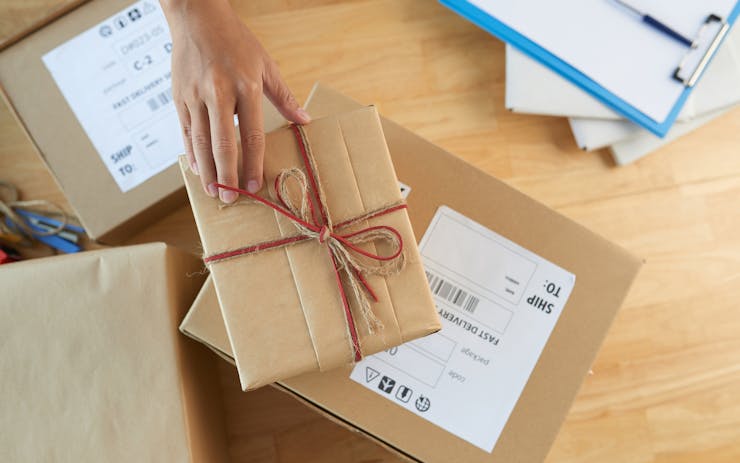The United States has the largest prison population and highest incarceration rate in the world, and women are the fastest growing demographic of America’s prison populace. There were 219,000 women in US prisons as of October 2017, and most of them are mothers.
While it’s safe to say not all of these moms are serving time for cannabis, it’s also true that America’s prisons are full of moms who were caught using or selling small amounts of cannabis illegally.
According to the American Civil Liberties Union, 52% of all drug arrests in 2010 were for cannabis—and in 2016, cannabis arrests in the US outnumbered those of violent crimes.
However, as time continues to favor legalization, we’ll start to see more and more cannabis convictions expunged. In the meantime, here are just a few ways you can help cannabis prisoners with kids this Mother’s Day.
1. Help kids of incarcerated moms
One way to show support for moms who are serving time for cannabis is by helping their kids. Parents for Pot provides support to parents and kids who have been affected by anti-cannabis legislation, and they also conduct an annual holiday drive where they try to fulfill the holiday wish lists of kids whose parents are serving time for cannabis.
Though it’s not cannabis-specific, Angel Tree Program also sponsors an annual holiday drive for kids of incarcerated parents. And the Sesame Workshop offers a free tool kit to families affected by incarceration, as well as bilingual programs for children. Here are a few more non-cannabis yet helpful organizations you can support.
2. Send cards, postcards, letters, and photos
A note might not seem like much but receiving mail could seriously brighten someone’s day. If you know a person in prison for cannabis, but you’re not sure where they’re being held, you can look her up by name through the BOP Inmate Locator website.
Here’s a few other things you should know about sending mail to prisons:
- Prison staff reads all mail.
- Nudity is not allowed, period.
- You can’t send more than 25 photos at once.
- Only ink and paper are allowed, no staples or paper clips.
- You should always include the inmate ID number along with her name and address.
3. Send books or magazines
Reading might be the healthiest form of escapism there is, and it’s one of the few prison-approved hobbies that can help incarcerated women combat anxiety, depression, and boredom.
If you know an inmate’s name and ID number, you can order books from Amazon and have them shipped directly to a prison. You can also donate the books you don’t use anymore to the Women’s Prison Book Project (WBP).
According to WBP, their most requested book topics include: drug and alcohol recovery, mystery/horror novels, dictionaries, queer fiction and non-fiction, contemporary fiction in Spanish, books by authors of color, health books, books on arts and crafts, and books that tackle abuse issues.
Additionally, this article lists 11 frequently requested books in American prisons.
Here’s a few more things you should know if you’re planning to send the books yourself:
- Books have to be new. Used books will be sent back.
- Books have to be shipped from a major bookstore, such as Amazon.
- Books should contain zero nudity.
- Books should not contain any inflammatory material.
- Hardback books are often returned, so stick with paperbacks.
- Books must be sent via USPS.
- Books should be addressed to the inmate, and her inmate ID number should be clearly printed.
- You can ship only one package per month, and only 10 books at a time.
4. Support the Dignity for Incarcerated Women Act
Sponsored by Senators Cory Booker, Elizabeth Warren, Kamala Harris, and Dick Durbin, the Dignity for Incarcerated Women Act seeks to improve the lives of incarcerated women, whose gender-specific needs—like free and easy access to menstrual hygiene products—are often overlooked or intentionally ignored.
Perhaps more importantly, the bill hopes to change the way pregnant women are treated in American prisons. Shackling pregnant inmates during pregnancy, recovery, and childbirth is currently legal in half the country.
If it passes, here’s what the Dignity for Incarcerated Women Act would do for women in American prisons:
- Allow free phone calls, emails, and Skype chats between inmates and their family members.
- Require the Bureau of Prisons to consider where inmate’s children live when placing a prisoner.
- Mandate that women receive free and quality pads and tampons while in prison.
- Prohibit shackling at the federal level.
You can visit the National Organization for Women’s website and take action to support this bill. Or, contact your representative and tell them why you support the Dignity for Incarcerated Women Act, and why they should as well.
5. Support incarcerated mothers’ right to breastfeed
Breastfeeding is a mother’s right. But when incarcerated women give birth during their sentence, their babies are typically taken away within 24 to 48 hours after birth. And although the Federal Bureau of Prisons says breastfeeding is allowed in visitation rooms, breastfeeding often takes more time than inmates are allowed to spare.
Equally upsetting is the fact that prisons aren’t set up to accommodate women who might want to pump and store their breast milk—some correctional facilities actually keep women from pumping, while others simply don’t have the refrigerator space or the breast pumps to make breast milk storage possible.
Consider helping pregnant women and new moms who are serving time for cannabis by contacting your representative about this injustice. Tell them why you support incarcerated mother’s right to breastfeed, and why they should also.
6. Send a care package
Unfortunately, prisons typically won’t allow you to send your own personalized care package to prisoners. To prevent unregulated weapons and illegal substances from entering prisons, most correctional facilities require that care packages be sent through private vendors. It won’t be cheap, but if you do decide to go the care package route, check out Pigeonly, iCare, or Access Securepak.
7. Put money in a commissary account
If you can afford it, depositing funds directly into a commissary account is just about the most helpful thing you can do. In most prisons, incarcerated women have to pay for everything that isn’t considered completely necessary—from phone calls to toothpaste to tampons.
And although federal prisons recently made menstrual products free to women prisoners, most state prisons and local jails haven’t followed suit. In fact, women in Arizona state prisons would have to work 27 hours just to afford one box of tampons.
If you’d like to put money in a commissary account, you can send a postal money order directly to the Federal Bureau of Prisons. You can also use MoneyGram, Trust Fund, or Western Union’s send money to an inmate service. Here’s a couple more things you should know:
- Money for all federal prisoners gets sent to the same central clearing house in Des Moines, Iowa.
- You MUST send a postal money order, otherwise the Bureau of Prisons won’t accept your gift.
8. Support arts & crafts in prisons
Countless studies suggest that prison arts and crafts programs can help decrease violence, improve interracial tensions, and bolster self-esteem among incarcerated individuals. On top of that, activities like painting and journaling can decrease anxiety and provide a mood boost.
You can find out how to purchase a prisoner’s art through the Prison Arts Coalition, an independent space and national network providing information and resources for people creating art in and around the American prison system.
Or, check out Hawaii’s CARE project—a prison program that empowers inmates to create and sell their art.
If you live in or near Kansas, Arts in Prison offers several volunteer opportunities.
You can also contact your representative and ask them to take prisoner arts and crafts programs more seriously.
9. Write a clemency support letter
Writing a letter in support of a cannabis prisoner’s clemency petition is a great way to show that you care, and all it will cost you is your time. Each clemency support letter is logged and recorded, and the more times a cannabis prisoner’s name comes up in a positive way, the better.
If you need help getting started, here’s a guide.







